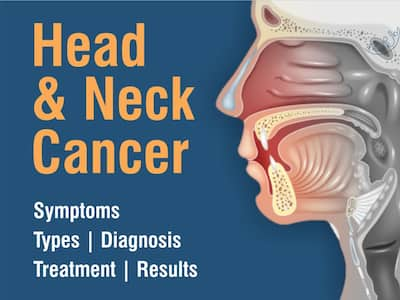
Cancer is tough to cure because of its ever-growing characteristic, but identifying suspicious signs early on may improve the likelihood of a full recovery.
Head and neck cancers encompass a range of malignancies that affect the throat, voice box, mouth, nose, and related structures. This fatal condition is a significant health concern in India. It is among the most common types of cancer in the country, accounting for a substantial burden of cancer cases. The prevalence of head and neck cancer in India is influenced by various factors, including lifestyle habits, cultural practices, environmental exposures, and socioeconomic factors.
Expert Answers FAQs about Head and Neck Cancers
As with any type of cancer, understanding the disease and its management is crucial for patients and their families. Dr Mandeep Singh Malhotra, Director- Surgical Oncology, CK Birla Hospital (R), Delhi, answers some of the common questions and concerns about head and neck cancer:
What Causes Head And Neck Cancers?
The primary risk factors include tobacco use (cigarettes, cigars, smokeless tobacco) and excessive alcohol consumption. The prevalence of oral cancer is particularly high in the country due to the widespread use of tobacco and betel quid (paan) chewing, especially in certain regions. The consumption of alcohol, especially when combined with tobacco use, further increases the risk of head and neck cancer. Additionally, human papillomavirus (HPV) infection, particularly strain HPV16, is a growing risk factor for certain head and neck cancers, especially in the oropharynx.
Unusual Symptoms of Head and Neck Cancers
Head and neck cancers can present with a variety of symptoms, which may vary depending on the specific location and stage of the cancer. Some of the common symptoms of head and neck cancer include:
- A sore throat
- Persistent cough
- Hoarseness
- Difficulty swallowing
- Ear pain
- A lump or mass in the neck, and
- Unexplained weight loss
In case of any persistent symptoms, it is recommended to seek help from an expert and get clinically diagnosed for identifying the disease at an early stage.
How does treatment for head and neck cancers affect speech and swallowing?
Treatment may impact speech and swallowing depending on the location of the cancer and the extent of the intervention. Surgical removal of tumors in the head and neck region may involve the removal of parts of the tongue, throat, or voice box (larynx). These procedures can directly affect speech and swallowing abilities. In some cases, reconstructive surgery may be performed to restore function, but it may still result in changes in speech and swallowing. On the other hand, radiation and chemotherapy can cause inflammation, scarring, and stiffness in the muscles and tissues involved in speech and swallowing.
READ RELATED: WHO Alert: Pholcodine-Containing Cough And Cold Remedies May Cause Severe Allergic Reactions
Are there any supportive therapies available for managing side effects?
Yes, supportive care is an essential aspect of head and neck cancer treatment. Depending upon the case, oncologist often collaborate with other healthcare professionals, such as speech-language pathologists, nutritionists, and social workers, to provide comprehensive care and manage side effects such as pain, difficulty swallowing, and emotional well-being.
Can head and neck cancers be prevented?
While it may not be possible to prevent all head and neck cancers, certain preventive measures can significantly reduce the risk. These include avoiding tobacco and excessive alcohol use, practicing safe sex to reduce the risk of HPV infection, and maintaining good oral hygiene. Among these, one of the most important preventive measures is to avoid all forms of tobacco, including smoking cigarettes, cigars, pipes, and using smokeless tobacco products. Additionally, limiting alcohol intake and practicing moderation can help reduce the risk. Drinking plenty of fluids, particularly water, also helps maintain oral health and reduces the risk of dry mouth (xerostomia). And lastly, routine medical and dental check-ups are important for early detection and timely intervention.
Total Wellness is now just a click away.
Follow us on
Don’t Miss Out on the Latest Updates.
Subscribe to Our Newsletter Today!
window.addEventListener(‘load’, (event) => {
$(‘#commentbtn’).on(“click”,function(){
(function(d, s, id) { var js, fjs = d.getElementsByTagName(s)[0]; if (d.getElementById(id)) return; js = d.createElement(s); js.id = id; js.src = “//connect.facebook.net/en_US/sdk.js#xfbml=1&version=v2.3”; fjs.parentNode.insertBefore(js, fjs);}(document, ‘script’, ‘facebook-jssdk’));
$(“.cmntbox”).toggle();
});
});








